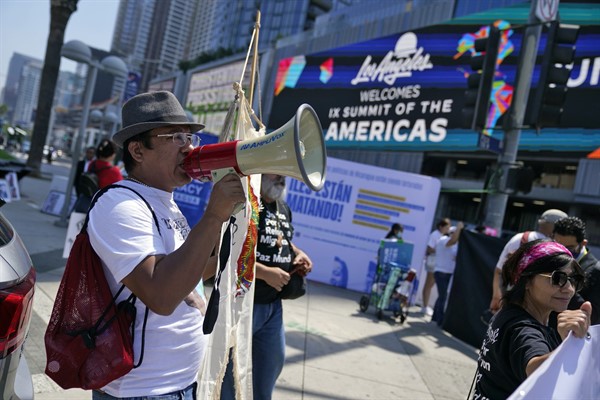Wedged between highways and railroads, on a barren stretch of moldy concrete and sickly palm trees in Sao Paulo, sits the headquarters of the Latin American Parliament, or Parlatino, designed by famed Brazilian architect Oscar Niemeyer. Created in 1964, the Parlatino was modeled on the European Parliament as a legislative body that would drive the integration of Latin American and the Caribbean around their unique regional and hemispheric interests.
Today, though, the Parlatino is irrelevant, detached from national and even regional policy debates—just one of a succession of Latin American efforts to create a body to coordinate the hemisphere’s interests internally and before the rest of the world. Those attempts never quite panned out, but the dream of regional integration remains. Its lofty rhetoric and visions of pan-American solidarity, cooperation and mutual respect continue to survive as articles of faith among Latin American and Caribbean nations, repeated in historical projects and public speeches—and for good reason.
If successful, regional integration could help Latin America build greater economies of scale and increase its collective bargaining power in matters of trade with the developed world, and especially with the United States, Canada and the European Union. Integration could help the region negotiate the purchase of key inputs—today, for example, fertilizer and coronavirus vaccines. It could coordinate countries’ policies toward the U.S. and provide the means for resolving internal conflicts without their northern neighbor’s divisive and often heavy-handed interventions. And it could help defend commitments to human rights and democracy from their enemies within the region.

